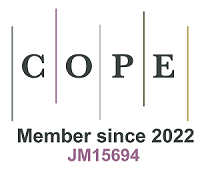A Special Issue of Extracellular Vesicles and Circulating Nucleic Acids
ISSN 2767-6641 (Online)
Submission deadline:
A Special Issue of Extracellular Vesicles and Circulating Nucleic Acids
ISSN 2767-6641 (Online)
Submission deadline:


All published articles are preserved here permanently:
https://www.portico.org/publishers/oae/